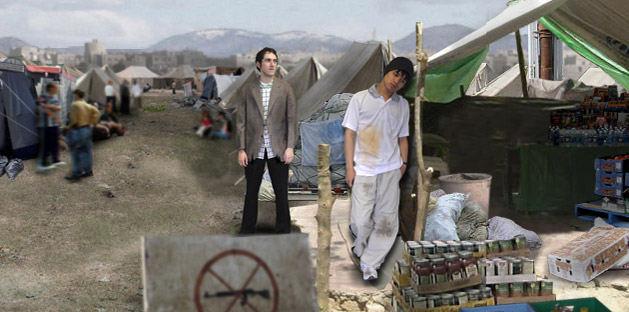 When Dr David Corlett appeared on Go Back To Where You Came From and began using the reality show voice, I realised that the show would be sensational rather than true. That expectation was justified in the first episode when the participants were put on a sinking boat. From the comfort of my sofa it was clear that the group were never in danger and that the leak and the smoke were introduced to scare the participants.
When Dr David Corlett appeared on Go Back To Where You Came From and began using the reality show voice, I realised that the show would be sensational rather than true. That expectation was justified in the first episode when the participants were put on a sinking boat. From the comfort of my sofa it was clear that the group were never in danger and that the leak and the smoke were introduced to scare the participants.
I’d be prepared to believe that the entire show was scripted, but even if the dialog wasn’t it’s clear that the situations were carefully selected, that the participants were chosen to present the desired responses (and probably directed that way) and that the show was edited for best effect. The publicity shot makes them seem more like actors than real people. Why would anyone as racist or as comfort-loving as Racquel sign up for the show? Because she’s more than she appeared to be.
 Don’t get me wrong. I think there was value in the show. I’m sure the refugees and their portrayed lifestyles were real and we could all benefit from a better understanding of other people. The structure – taking the story backwards from their life in Australia, through the processing centre, to the boats and on back to their home country – while sensational, had a much stronger impact than it would have had, were it done the other way around. However, it would have been more believable as a documentary, and in each case it must be remembered that it showed just two examples of the many refugee stories.
Don’t get me wrong. I think there was value in the show. I’m sure the refugees and their portrayed lifestyles were real and we could all benefit from a better understanding of other people. The structure – taking the story backwards from their life in Australia, through the processing centre, to the boats and on back to their home country – while sensational, had a much stronger impact than it would have had, were it done the other way around. However, it would have been more believable as a documentary, and in each case it must be remembered that it showed just two examples of the many refugee stories.
It certainly didn’t change my opinion, as unpopular as mine may be. I recall, from my time in Belgium, the accusations in both media and in person over Australia’s poor treatment of refugees. Yet Belgium had played a big part in creating the problems in the Congo and neither they, nor other European countries, were doing much to welcome refugees. Should they?
 While I don’t bear my countrymen or government any ill-will for bringing refugees in, and I’m certainly happy for those that make it, I don’t think that encouraging or supporting people to leave their country is a good idea. How does it affect the people they leave behind? Who’s going to take action to improve the situation if all but the least able victims flee? They’re leaving their own people to suffer without support.
While I don’t bear my countrymen or government any ill-will for bringing refugees in, and I’m certainly happy for those that make it, I don’t think that encouraging or supporting people to leave their country is a good idea. How does it affect the people they leave behind? Who’s going to take action to improve the situation if all but the least able victims flee? They’re leaving their own people to suffer without support.
The more altruistic reader may claim that it’s our responsibility to help these people and to step in to fix the situations they’re escaping from. That argument supports the American interference in the Middle East. As a privileged outsider with a different set of cultural values and a different history, I don’t feel qualified to ‘fix’ problems in other cultures and I don’t think our governments or aid organisations are either. It’s for that reason that I chose to give half the royalties from Dragon Bones to local Bhutanese organisations that are better placed to identify and fix problems than me.
The real question, for me, is whether these people can do more to impact the situation in their home countries from Australia than they could have while actually at home. I didn’t see that answered in the TV show.